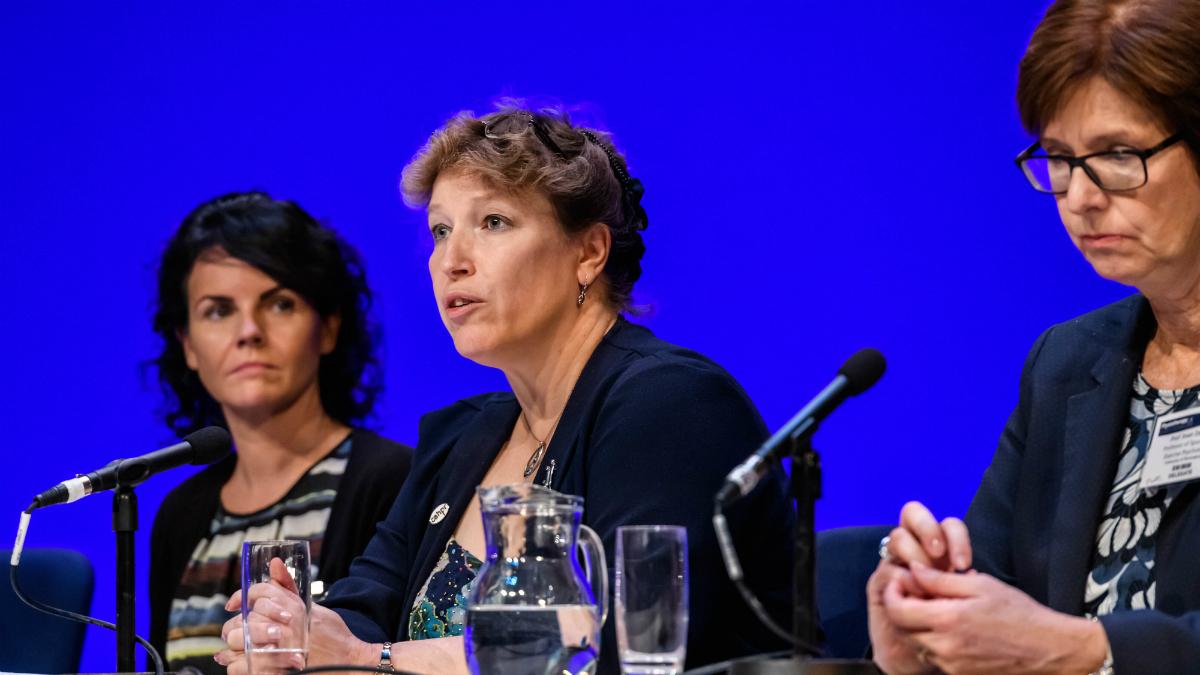Communication affects every clinical encounter and must be one of the most highly-developed skills in a clinician’s toolkit, said Lisa Roberts, a consultant physiotherapist and clinical professor of musculoskeletal health.

In a session about influencing behaviour and belief in healthcare, Professor Roberts spoke about her research at the University of Southampton, which could help clinicians to improve their interactions with patients.
The research was based on more than 100 observations and interviews from primary care consultations involving physiotherapists and patients with back pain.
‘The results showed that during 40 minute consultations physios tended to speak for about half the time, while patients spoke for about a third,’ said Professor Roberts.
‘The physios gave lot of information, with 12 per cent of it constituting advice – and the more experienced clinicians demonstrated a greater prevalence of talking concurrently and interrupting patients.
‘So, we love to interrupt our patients – and the more experienced we are the more we do it.’
Avoiding minimising language
Professor Roberts also spoke about her research into the impact of using minimising phrases with patients, such as just, pop, quick, only and a bit.
She said that describing how an assessment might proceed by saying ‘just pop on there, so I can have a quick look’ could inadvertently communicate a lack of care. It could suggest to a patient that their concerns were not being taken seriously, or given adequate time.
Equally, describing a person’s condition as a bit stiff or a bit sore risked minimising their experience.
Instead, physiotherapists should make use of ‘TED’ questions that take the form of tell me, explain to me, describe to me, Professor Roberts suggested.
They can also offer patients reassurance by acknowledging their pain and distress; being supportive and avoiding negative language; and providing appropriate explanations and a clear prognosis.
She added that audio recording consultations – with the permission of patients – might help physiotherapists to enhance their communication skills.
Find Out More
Number of subscribers: 1



































